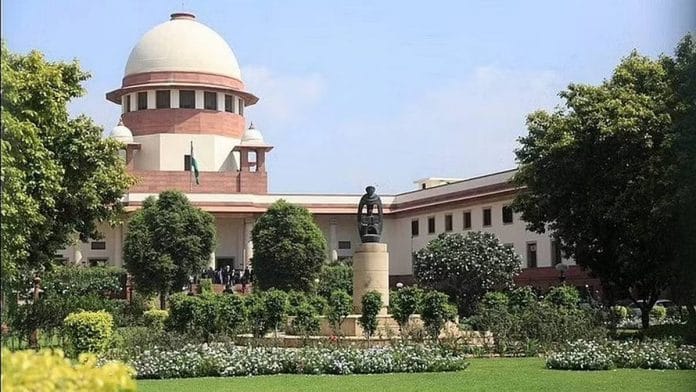
Thank you dear subscribers, we are overwhelmed with your response.
Your Turn is a unique section from ThePrint featuring points of view from its subscribers. If you are a subscriber, have a point of view, please send it to us. If not, do subscribe here: https://theprint.in/subscribe/
It is seen in some cases, that despite having given bail to the accused, the amount of bond fixed by the court is so excessive that it consequentially leads to continued incarceration. Therefore, the superior courts have time and again held that bail bond should be fixed considering the accused person’s social standing and not on the gravity of offence. Another reason for overcrowding of our prisons is the insistence of the court to procure a local surety, which becomes an unrealistic and impractical condition to fulfil by the accused who may be arrested in a jurisdiction, away from his home turf and finding a local surety in a different city could be extremely unlikely. One such instance is when journalist Siddique Kappan was granted bail by the Lucknow bench of the Allahabad High Court in a case registered against him by the Enforcement Directorate, on a condition of ‘furnishing a personal bond and two local and reliable sureties’. Although, the said bail order was pronounced on 23 December 2022, Kappan was not released until 31 January 2023. Kappan, who hails from Kerala had to find two local sureties i.e. resident of Uttar Pradesh, who could vouch for him, as part of his bail condition. To add to his woes, there was a strike by the lawyers in Lucknow which further delayed the verification of sureties, thus resulting in more than a month delay in his release.
Recently, the Supreme Court while hearing a writ petition, Re Policy Strategy for Grant of Bail also observed that insistence of local surety must be relaxed. The Apex Court passed a series of directions upon taking cognizance of a report filed by the National Legal Services Authority of India (NALSA) which stated that there are 5000 undertrial prisoners who are in jail despite having granted the benefit of bail due to their inability to fulfill the bail conditions. In order to ensure speedy and timely release of undertrial prisoners, the Supreme Court, mandated the court which grants bail to an undertrial prisoner or convict to send a soft copy of the bail order by e-mail to the prisoner through the Jail Superintendent on the same day or the next day, following which the Jail Superintendent would be required to enter the date of grant of bail in the software. This is a welcome step and would avoid many instances where the jail authorities do not release the accused despite a favourable bail order in their favour. One such instance is when comedian Munawar Faruqui (was arrested for allegedly hurting religious sentiments during one of his shows), was granted bail by the Apex Court. However, he was not released from Indore Jail until several hours later on the ground that the prison authorities had not received an official communication from the concerned court regarding the bail order. It was only when one of the judges of the Supreme court called up the Chief Judicial Magistrate of Indore and asked the latter to check the Court’s website for the uploaded order and to comply with it, that the comedian was released. When people who are well represented in courts have to undergo this kind of ordeal, we can only imagine the plight of those who are in the lower echelons of society- without resources and adequate support.
The Apex Court has stated that in case and if at all, the accused is not released within a period of 7 days from the date of grant of bail, it would be the duty of the Superintendent of Jail to inform the Secretary, District Legal Services Authority (DLSA) who may depute either a paralegal or an advocate to assist such prisoner in their release. In addition to the above, the Supreme Court has further directed the Secretary of DLSA to draft a report on the socio-economic condition of the jail inmates which may be placed before the concerned Court with a request to relax the condition (s) of bail/surety.
In appropriate cases, the relevant Court may consider granting temporary bail for a limited period of time to the accused to enable him to furnish the bail bond or sureties, as the case may be and, if the bail bonds are not furnished within one month from the date of grant of bail, the concerned Court may suo moto take up the case and consider relaxing the bail condition. This step will greatly help the poor and needy.
As per the Multidimensional Poverty Index (MPI) released by NITI Aayog in 2021 about one in every four Indians (25 per cent) is living in poverty. Despite the figures, we choose the look the other way. Fundamentally, the bail system is anti-poor. We cannot achieve social justice if inherently discriminatory bail conditions are imposed upon the undertrials who are poor. In similar set of events, a rich person walks out of jail freely because he is able to procure sureties and execute bail bonds. On the other hand, the poor continues to languish in jail. The bail system must be revamped in order to ensure fair and equal treatment to the poor.
These pieces are being published as they have been received – they have not been edited/fact-checked by ThePrint.


COMMENTS